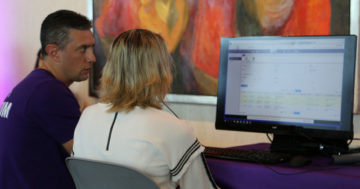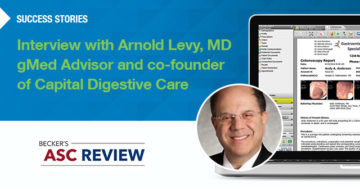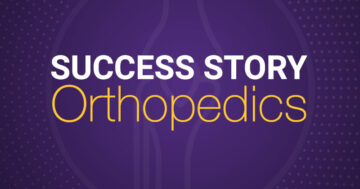The Great Resignation Persists: Could Technology Be Your Way Out?

How private practices can overcome the stress of staff shortages with smart technology upgrades
By John V. Guiliana, DPM, MS
According to some experts, while the term Great Resignation originated in 2021, the real wave of resignations hit in 2022 when more than 50 million workers quit their jobs, breaking the previous year’s record. At the same time, competition caused employers to raise wages at their fastest pace in decades.
New paradigm creates stress for private practices
Reducing stress in the clinical setting is instrumental to not only professional success but also job fulfillment. If you talk to healthcare professionals, they may tell you from firsthand experience that a cause of the Great Resignation is frequently attributed to practices rowing upstream against stagnant reimbursements, rising costs and regulatory burdens. To be financially healthy amid this new paradigm, practices often have to do more with less. Naturally, the COVID-19 pandemic greatly magnified this paradigm.
This new paradigm tends to create burnout among staff as well as the feeling of lost autonomy for physicians. The current trend and affinity toward corporate medicine and private equity acquisitions versus private practice are now understandable, as physicians seek to regain their purpose of caring for people, as opposed to also running a more complicated business. There are indeed some instrumental strategies that can be deployed in the private practice setting in an attempt to sustain employee morale, job satisfaction and profitability.
Mitigating staff stress with technology
Technology can be a double-edged sword. It’s frequently viewed as one of the stressors, creating much of a practice’s angst. But once embraced and used correctly, technology might be the way out of the Great Resignation.
Technology must be used in a way that facilitates processes and does not interrupt them. Doing more with less demands a critical look at all business processes and determining what can be automated without sacrificing quality. Features such as patient engagement, automated recall and others are essential to enable staff to do their jobs with greater ease and fewer resources. According to a 2020 World Economic Forum survey of about 300 global companies, 43% expect to reduce their workforces with new technology. Automation is certainly a strategy to defend against the Great Resignation.
Facilitating organizational change with leadership and engagement
But modernizing the technology of a medical practice demands effective leadership and change management from the top of the organization. After all, if the stress associated with moving from point A to point B appears greater than the stress of simply remaining at point A, the organization will tend to remain stagnant.
To be an effective change agent, leaders must start with organizational buy-in. People must feel included in various parts of the decision-making process, rather than feeling as if they were handed a mandate. They need to understand the rationale for the change and how remaining stagnant will perpetuate increasing stress, which is no longer a viable option. The team must thoroughly prepare for the change and proactively expect that there will be a temporary “adoption discomfort” associated with it. Knowing that this additional stress will only be temporary helps set the stage for a positive movement toward change and establish realistic expectations. Innovators, early adopters and laggards should be identified early so they can receive the proper individualized resources.
While technology and its proper use are critical for managing organizational stress, physicians and their staff shouldn’t be shy about incorporating stress management techniques into their cultures and personal lives. Consider some of these helpful resources to start. Goal setting, organizational celebrations, team-building exercises, cross-training and perpetual feedback can round out the strategies to help reduce the stresses of the Great Resignation.
About John V. Guiliana, DPM, MS
Dr. Guiliana is a nationally recognized speaker and author on topics pertaining to medical practice management. He is a fellow of the American Academy of Podiatric Practice Management and holds a master’s degree in healthcare management. He has authored numerous columns in various journals and is the coauthor of 31 ½ Essentials to Running Your Medical Practice, as well as The Million Dollar Practice…Keys to Success. Dr. Guiliana is currently medical director of podiatry for the award-winning technology of ModMed. He can be reached at [email protected].
This blog is intended for informational purposes only and does not constitute legal or medical advice. Please consult with your legal counsel and other qualified advisors to ensure compliance with applicable laws, regulations and standards.







